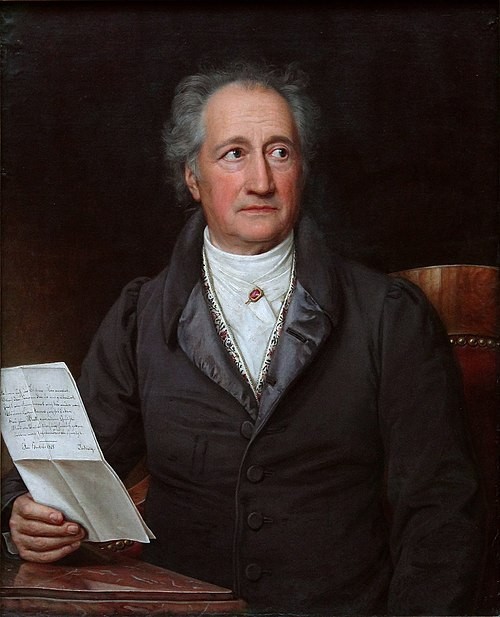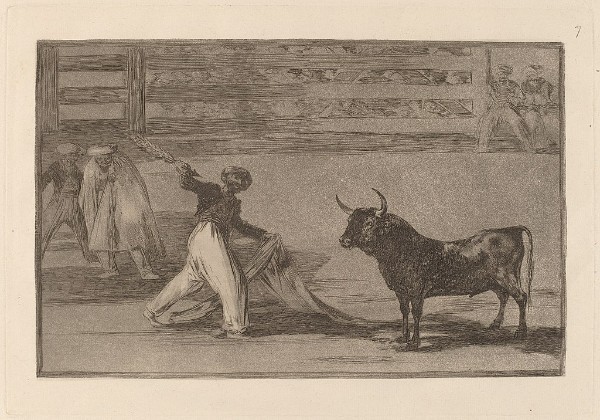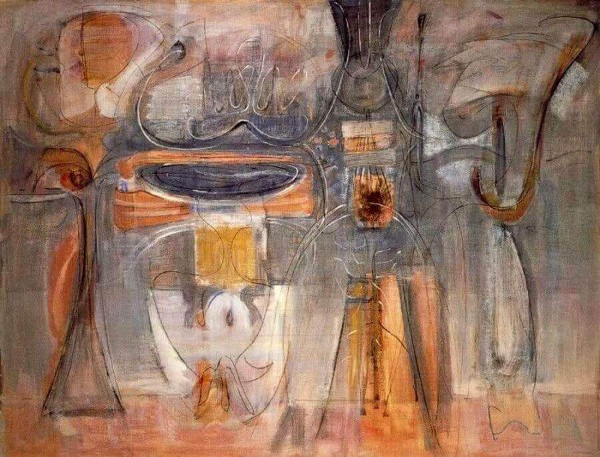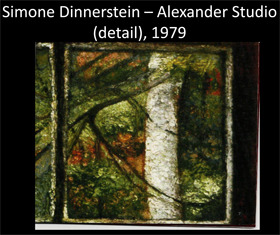 Pianist Simone Dinnerstein has recently released a new compact disk with the title “Something Almost Being Said – Music of Bach and Schubert” which includes Bach’s Partita No. 1 in B-Flat Major, Bach’s Partita No.2 in C-Minor and Schubert’s Four Impromptus, Op. 90. Dinnerstein uses a poem by Philip Larkin, titled The Trees, and her own paintings, as inspirations for her approach to the music of Bach and Schubert, focusing on the close relationship between the arts — music, painting and poetry — which has, of course, been the subject of many of my articles for this publication.
Pianist Simone Dinnerstein has recently released a new compact disk with the title “Something Almost Being Said – Music of Bach and Schubert” which includes Bach’s Partita No. 1 in B-Flat Major, Bach’s Partita No.2 in C-Minor and Schubert’s Four Impromptus, Op. 90. Dinnerstein uses a poem by Philip Larkin, titled The Trees, and her own paintings, as inspirations for her approach to the music of Bach and Schubert, focusing on the close relationship between the arts — music, painting and poetry — which has, of course, been the subject of many of my articles for this publication.
Bach : Partita No. 1 in B flat major, BWV 825
Dinu Lipatti
The poem by Philip Larkin, included in the CD’s notes, reads as follows:
The Trees
The trees are coming into leaf
Like something almost being said;
The recent buds relax and spread,
Their greenness is a kind of grief.
Is it that they are born again
And we grow old? No, they die too,
Their yearly trick of looking new
Is written down in rings of grain.
Yet still the unresting castles thresh
In fullgrown thickness every May.
Last year is dead, they seem to say,
Begin afresh, afresh, afresh.

Simone Dinnerstein
Dinnerstein’s fresh and extraordinarily delicate piano technique is eminently suited to express the works of these composers. As she points out, many of Bach’s and Schubert’s works are anchored in a strong vocal tradition. Johann Sebastian Bach, as Cantor of the Leipzig Thomasschule and Thomaskirche (Thomas School and Church), wrote weekly hymns for choir and congregation very much in the Lutheran tradition of active participation. In Bach’s St. Matthew’s and St. John’s Passions, orchestra and soloists alternate with hymns for the public to join in, following the Lutheran tradition of active participation in church services.
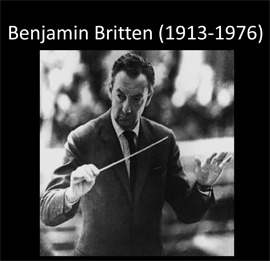 Schubert himself was a Vienna Choirboy until his voice broke, and we are very familiar with his song cycles, such as the Lieder eines Fahrenden Gesellen (Songs of a Journeyman) and the Winterreise (Winter’s Journey). In fact, during his lifetime, only his lieder and song cycles were known to the general public.
Schubert himself was a Vienna Choirboy until his voice broke, and we are very familiar with his song cycles, such as the Lieder eines Fahrenden Gesellen (Songs of a Journeyman) and the Winterreise (Winter’s Journey). In fact, during his lifetime, only his lieder and song cycles were known to the general public.The question Dinnerstein raises in ‘Something almost being said’ reaches also well into the 20th century and can be addressed in particular in the song cycles of Benjamin Britten. The very essence of music defines this undefinable state, leaving our imagination free, and any meaning open to multiple interpretations — just as Dinnerstein’s paintings seem to be almost abstractions of trees, alluding just barely to their completeness.
Many of Britten’s song cycles were inspired by great masterpieces in art and poetry, such as his “Seven Sonnets of Michelangelo” and his “A Thousand Gleaming Fires”, which is based on a poem by Emily Brontë; ”The Holy Sonnets of John Donne” (the poet), and his “Death in Venice”, following Thomas Mann’s novel; the orchestrated cycles “Quatre chansons françaises” influenced by poems by Hugo and Verlaine, and many others written for his friends, the singers Peter Pears, Dietrich Fischer-Dieskau and Galina Vishnevskaya.
War Requiem, Op. 66
Requiem aeternam
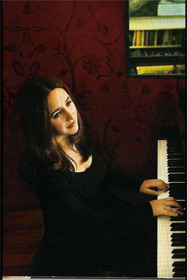 One of Britten’s most memorable works, “War Requiem” (first performed on May 30th 1962) was written for the re-consecration of the new Coventry Cathedral, built adjacent to the ruins of the 1,000 year-old cathedral destroyed during the Battle of Britain in World War II. Britten intersperses the Latin Mass for the Dead with nine poems by Wilfred Owen, the English soldier and poet killed just one week before the Armistice of World War I. What is ‘not being said’ is that the work is not just a requiem mass for the dead soldiers, but foremost a statement of Britten’s denunciation of the evils of war. The Requiem is a large-scale work, introduced by a long slow beginning, with three soloists, a full choir and orchestra, and a boys choir and organ, divided into three different, physically separated planes. The boys choir and organ, distant from the orchestra and the soloists, seems almost ethereal. The soprano sings in Latin, whereas the tenor and baritone sing Owen’s poems in English, always interspersed with the Latin texts sung by the full choir. The critic Nicholas Maw said of Benjamin Britten’s vocal music: “His feeling for poetry (not only in English) and the inflexions of language make him, I think, the greatest musical realizer of English” (Benjamin Britten: Tributes and Memories, Tempo, New Series, No. 120, March 1977, pp. 2-6).
One of Britten’s most memorable works, “War Requiem” (first performed on May 30th 1962) was written for the re-consecration of the new Coventry Cathedral, built adjacent to the ruins of the 1,000 year-old cathedral destroyed during the Battle of Britain in World War II. Britten intersperses the Latin Mass for the Dead with nine poems by Wilfred Owen, the English soldier and poet killed just one week before the Armistice of World War I. What is ‘not being said’ is that the work is not just a requiem mass for the dead soldiers, but foremost a statement of Britten’s denunciation of the evils of war. The Requiem is a large-scale work, introduced by a long slow beginning, with three soloists, a full choir and orchestra, and a boys choir and organ, divided into three different, physically separated planes. The boys choir and organ, distant from the orchestra and the soloists, seems almost ethereal. The soprano sings in Latin, whereas the tenor and baritone sing Owen’s poems in English, always interspersed with the Latin texts sung by the full choir. The critic Nicholas Maw said of Benjamin Britten’s vocal music: “His feeling for poetry (not only in English) and the inflexions of language make him, I think, the greatest musical realizer of English” (Benjamin Britten: Tributes and Memories, Tempo, New Series, No. 120, March 1977, pp. 2-6).Britten’s extraordinary orchestration underlines and exceeds the meaning of the poems, taking us and our imagination to this place where “something almost being said” is at the origin of a great masterpiece.
Simone Dinnerstein
Official Website
Something Almost Being Said

